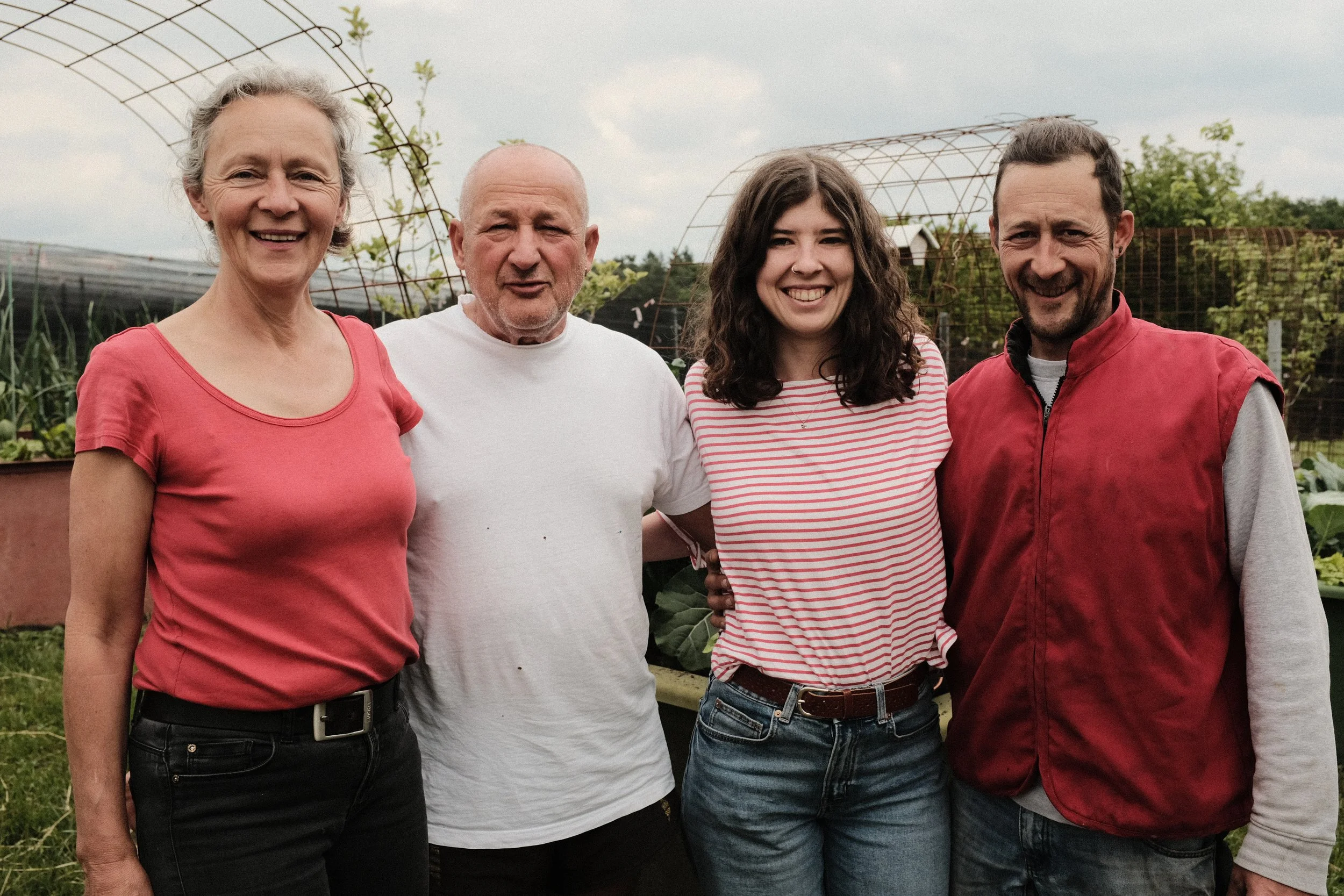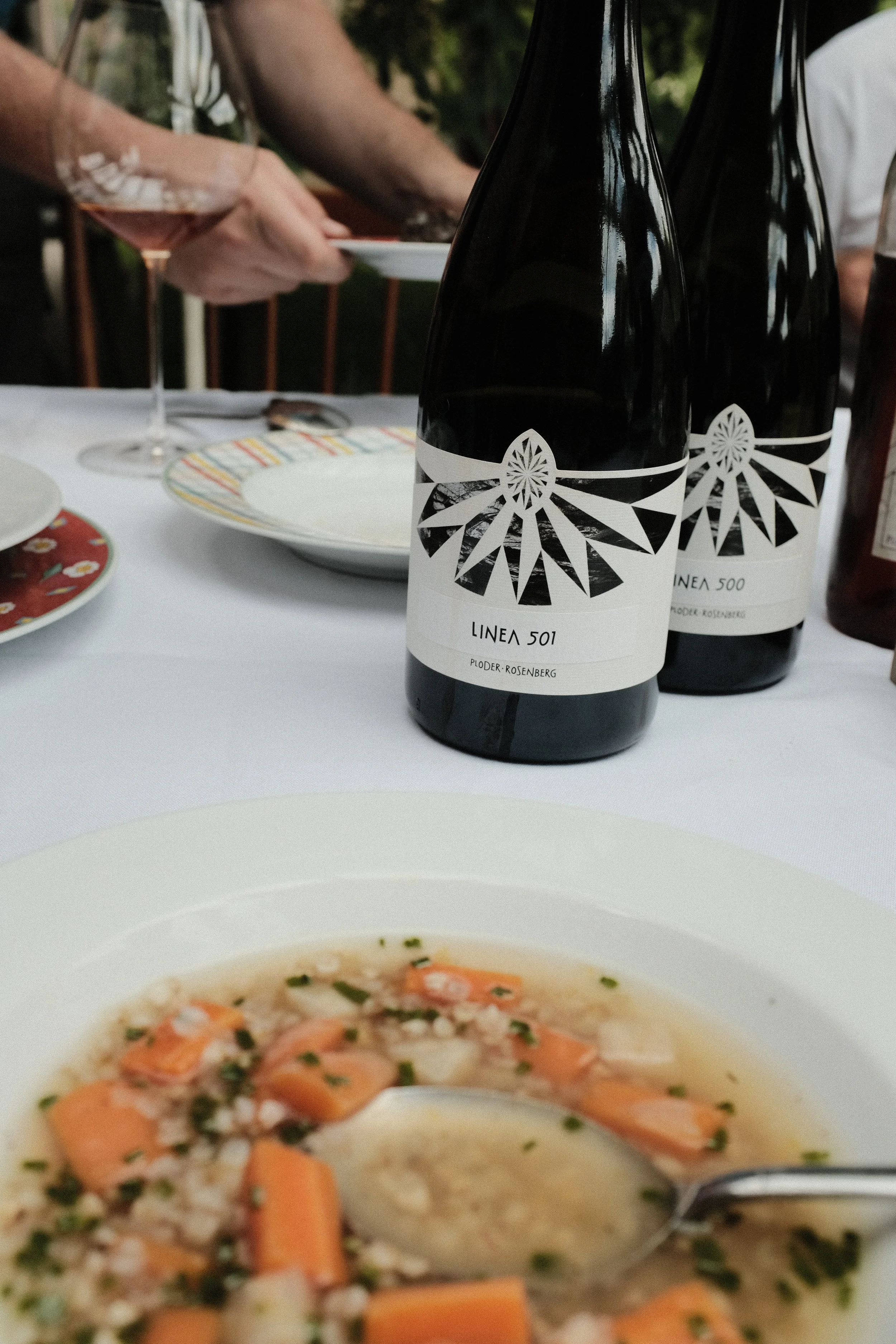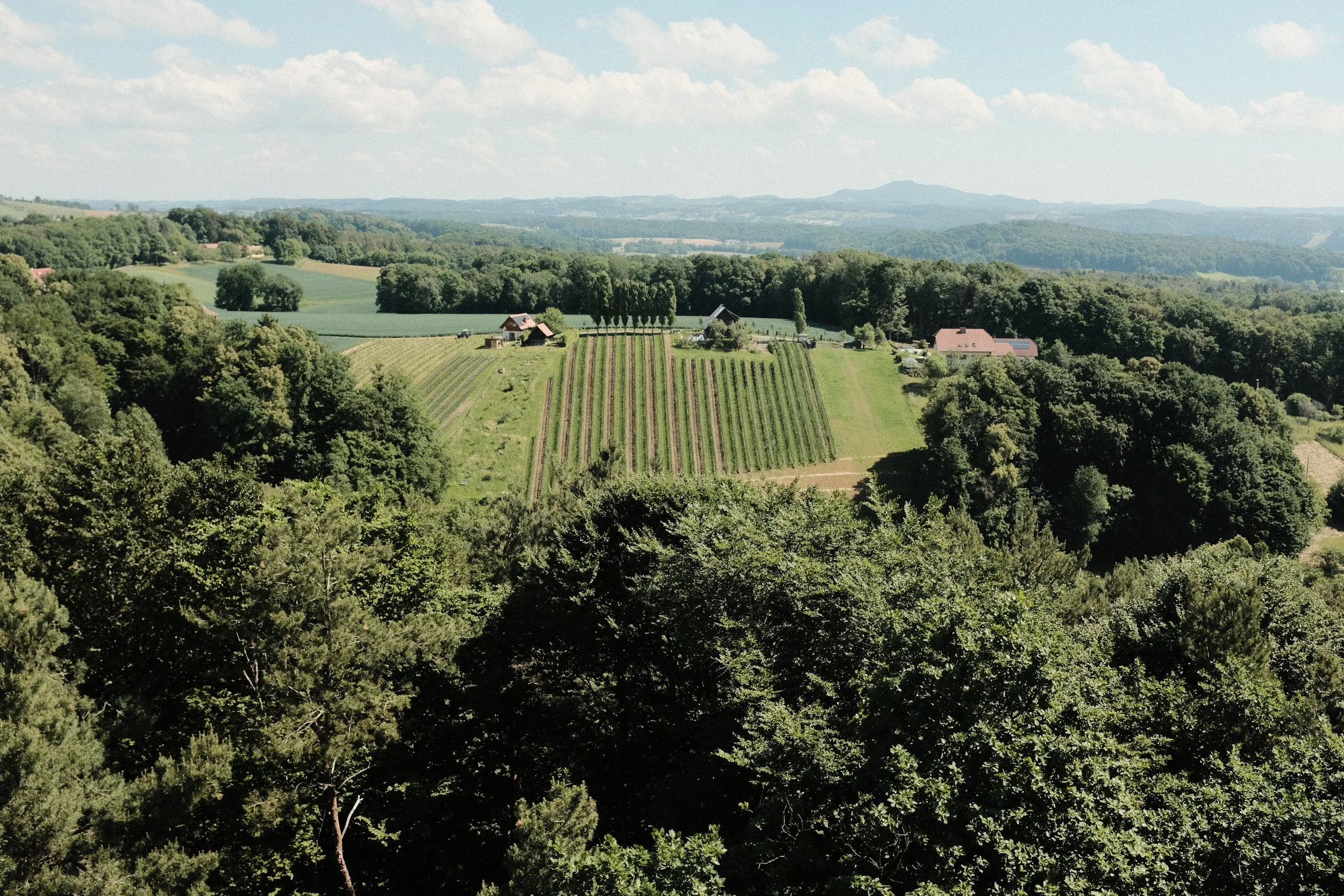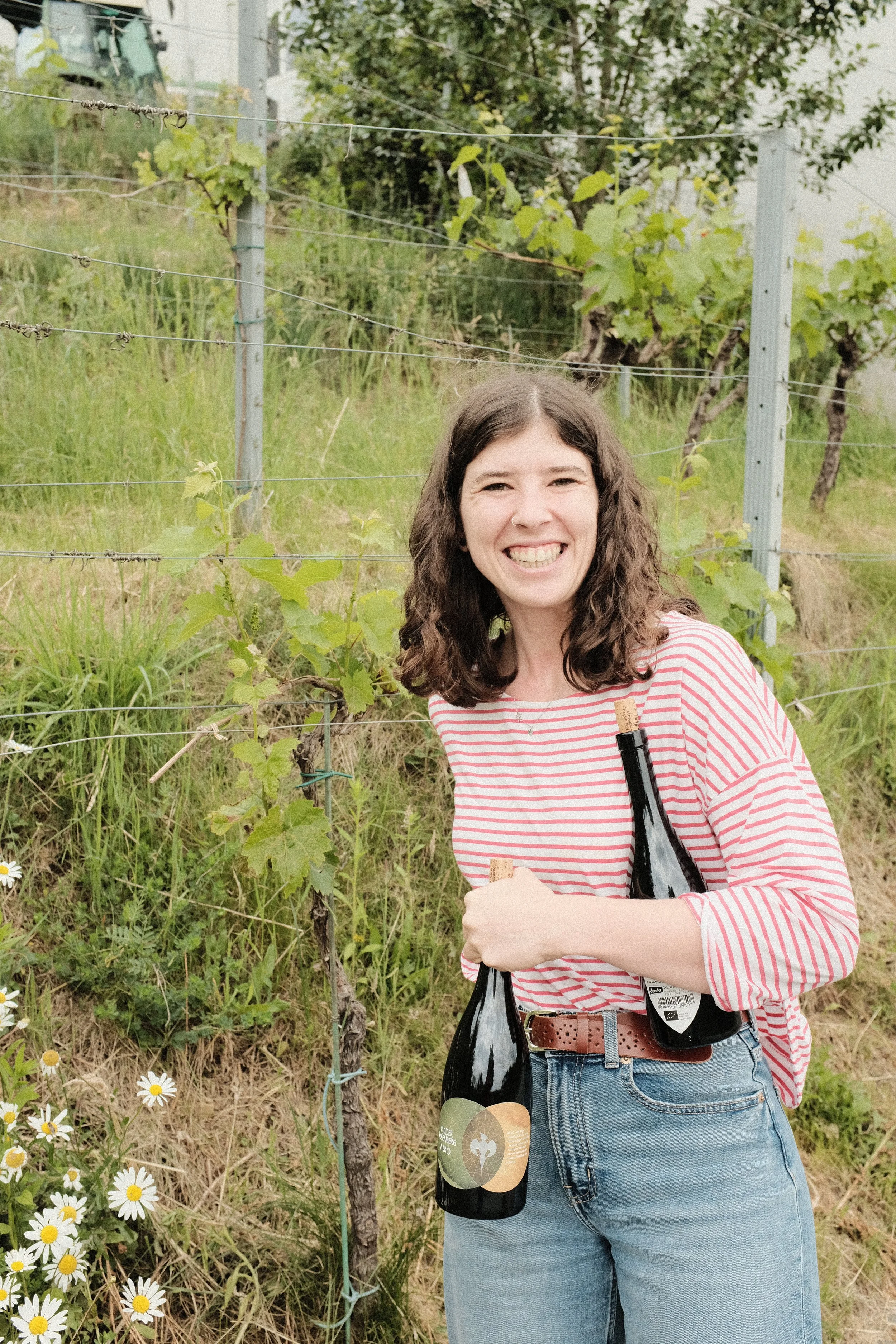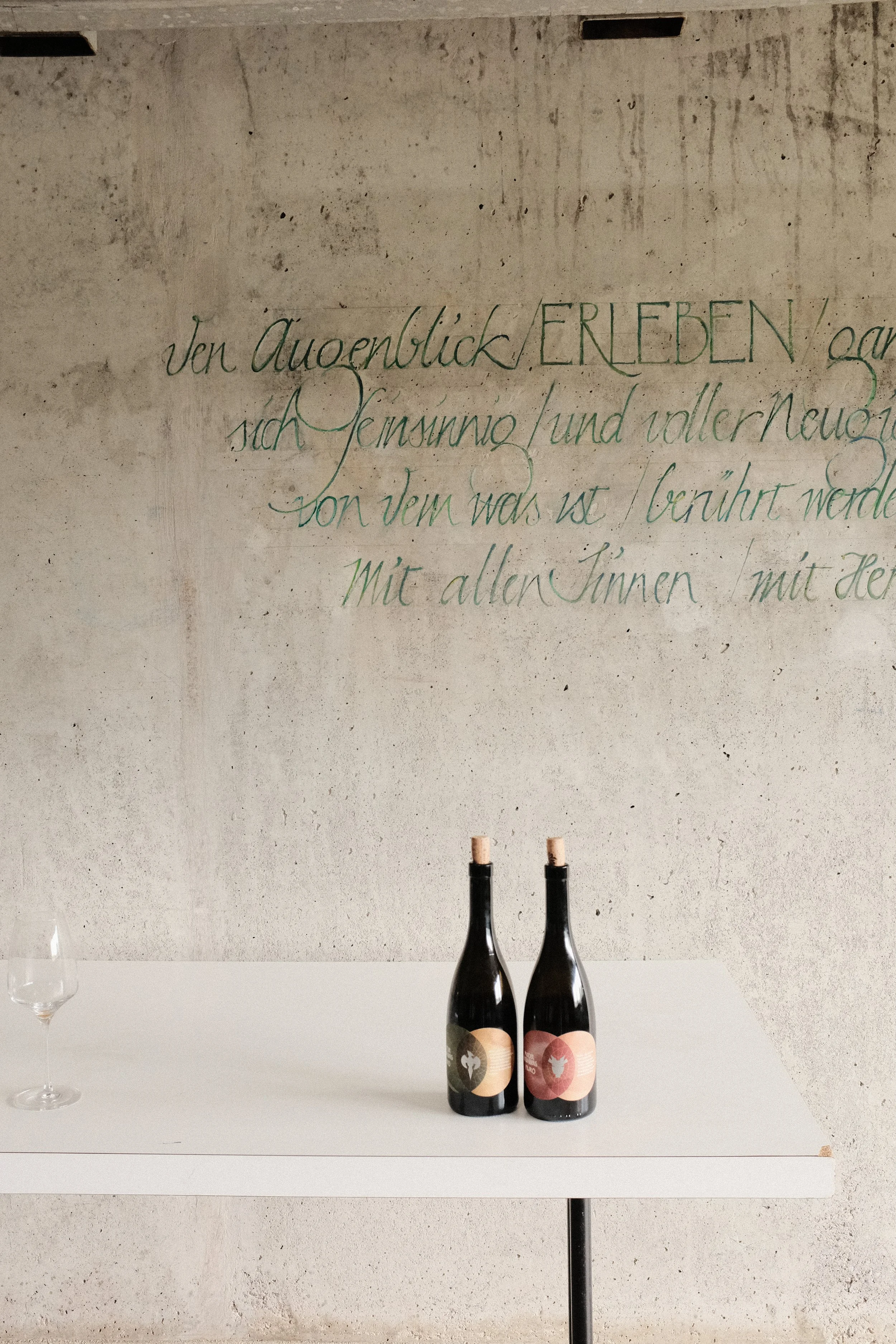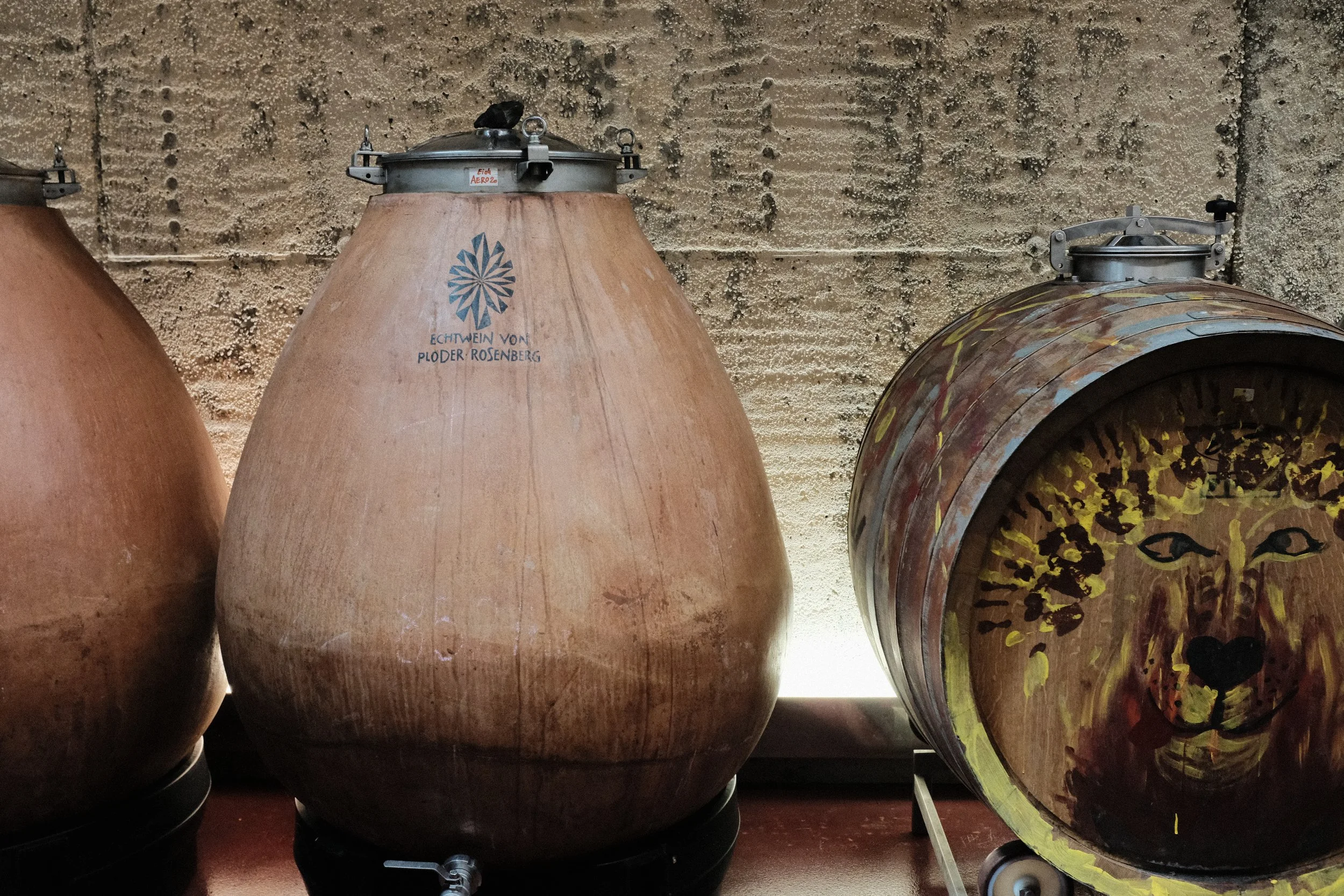PLODER-ROSENBERG
Location: Sankt Peter, Vulkanland, Styria
Hectares: 10
Farming: Certified biodynamic, focus on PIWI varieties
Winemaking: Minimal sulfur only at bottling as needed, wild yeasts, long aging
Manuel Ploder and his partner Selina Weratschnig are the 3rd generation to farm their vines in Sankt Peter, Vulkanland, a historically poor, agricultural region in eastern Styria. Manuel’s grandfather farmed fruit, tobacco, grapes and grains, and made wine for local consumption in his garage starting in 1969. His son, Alfred, and wife, Maria, took over in 1980, building a proper cellar, planting more vines, and making wine commercially. Their farm was conventionally farmed for a long time but Alfred and Maria began to realize that the vines were “like addicts” and something needed to change. They became students of permaculture and over time moved to planting a multitude of hybrid (PIWI in German) varieties and farming biodynamically beginning in 2006. Today, their farm is a true biodiverse utopia, overflowing with fruit trees, veggies, vines, and animals and insects too numerous to count. They have over 600 bird houses in their vines, in addition to rotating compost piles, and stones placed for energy work amongst the vines. The Ploders were among the very first to start growing PIWIs in 2004, and today their vineyards are 75% PIWI varieties.
Manuel and Selina now manage the winery, farm, and sales, but Maria and Alfred are very present and still very much a part of the beating heart of this beautiful place. The serenity and vibes of Ploder-Rosenberg cannot be overstated…this is a farm that exudes life in all of its forms, in the people, vines and cellar.
Winemaking is extremely intentional but very hands-off at the same time. Most wines are blends due to the very small plots that the Ploders work, however their “Linea” line has been produced since the 80s and is always composed of single-varietal wines. All whites are made with skin maceration. Vessels include barrels of various sizes, stainless steel, and clay in various shapes and sizes, including buried Georgian qvevri and Italian eggs and amphoraes. Manuel employs long aging on most of the wines and they will often release wines out of vintage order simply based on the wines’ readiness to drink.

